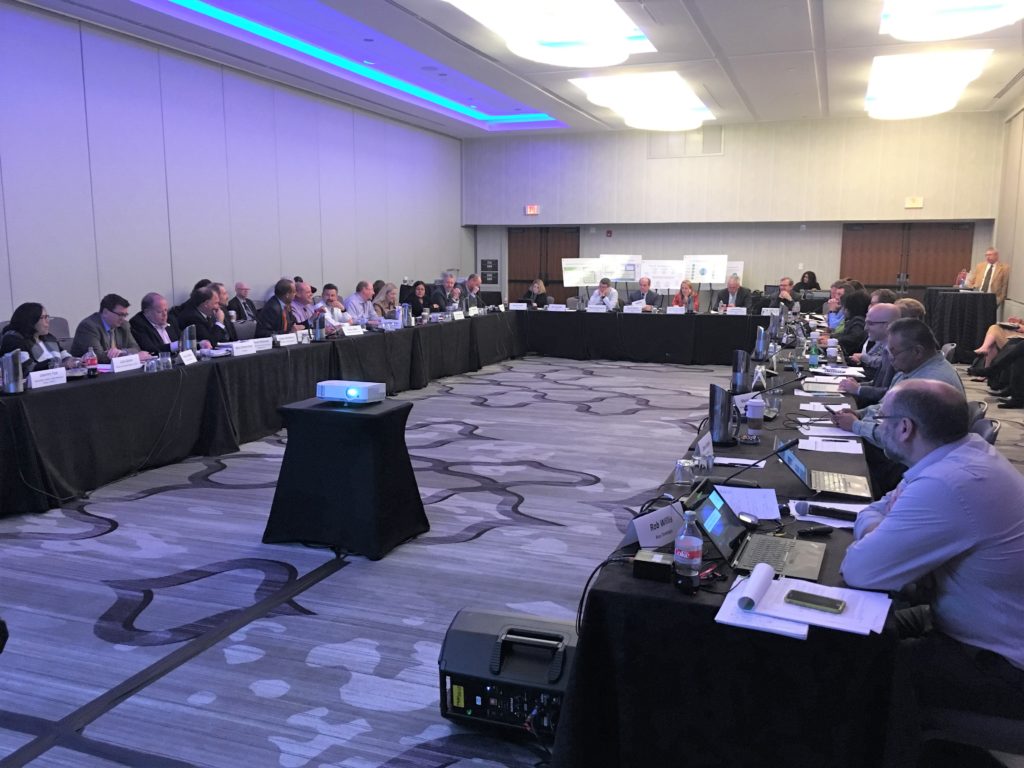
In November, EPA, state, and tribal leaders gathered in Washington, DC for an E-Enterprise Leadership Council (EELC) meeting. The meeting focused on the E-Enterprise Digital Strategy (see next story), information system modernization, continuous process improvement, and priority initiatives. Among other deliberations, the EELC members had an opportunity to consider how information is collected, managed, shared, and used to implement environmental programs.
A session on system modernization resulted in a council discussion on opportunities to update the State Drinking Water Information System (SDWIS) and Integrated Compliance Information System (ICIS) for air and water to make them more collaborative and inclusive of modern technology options like open data sources, shared services, and user-centered design.
Other highlights and areas of discussion included:
- The E-Enterprise Smart Mobile Tools for Field Inspectors for RCRA Subtitle C inspections announced it is anticipating a December 2019 release and is currently conducting EPA regional trainings.
- EPA-state team members for the E-Enterprise Combined Air Emission Reporting (CAER) project announced the strides that are being made in developing a Common Emissions Form, as well as Georgia’s planned launch for the spring 2020 reporting cycle.
- The EELC explored the value of sharing lean management processes and trainings, the use of visual management tools, and opportunities where EPA regions, states, and tribes can apply these practices in their daily work.
- EPA discussed their ongoing citizen science effort as it relates to data management, including a 2019 quality assurance handbook and template. The EELC expressed support for quality information that provides an accurate picture of environmental conditions.
- The Quality Assurance Project Plan team shared highlights from their lean action plan. Most recently, EPA issued a memo for streamlining communication between state/tribal project officers and the EPA regional quality assurance managers; EPA disseminated a survey to tribal and state environmental directors to collect information on training needs; and a workgroup of EPA, state, and tribal representatives is revising programmatic and national grant terms and conditions for quality assurance requirements.
- The Duke Nicholas Institute Internet of Water aims to promote quality water data by assessing to what degree they are FAIR (findable, accessible, interoperable, and reusable). The project inventories water data and creates a system of hubs to solve near-term water management problems through shared water data.
For more information, contact Beth Graves of ECOS, Jason White of Cherokee Nation, or Shana Harbour of EPA.
